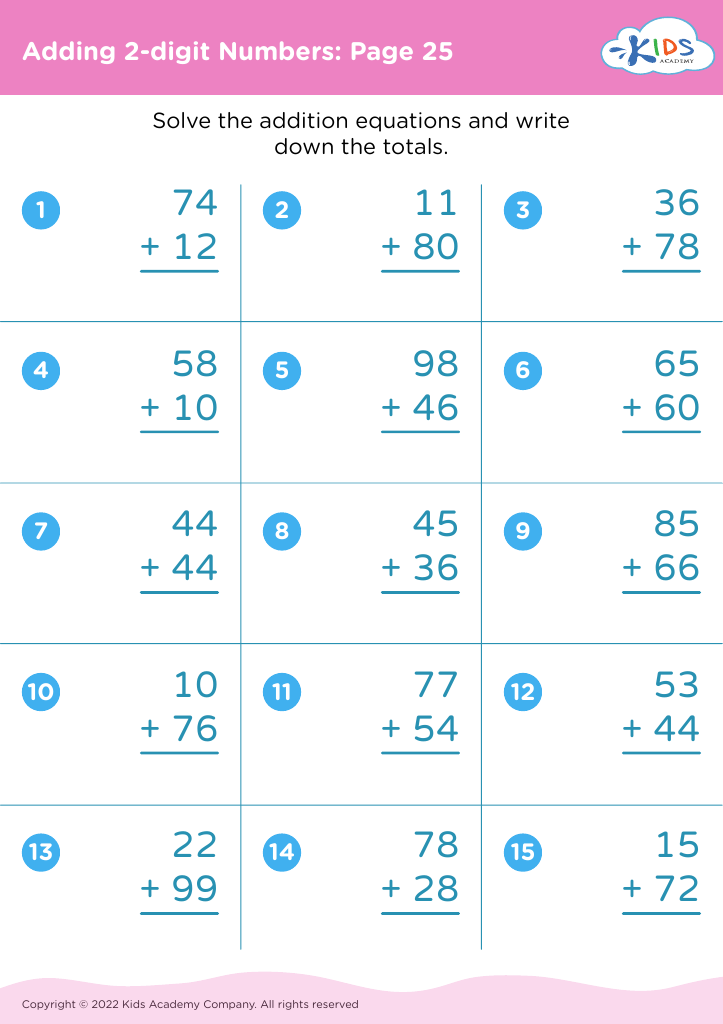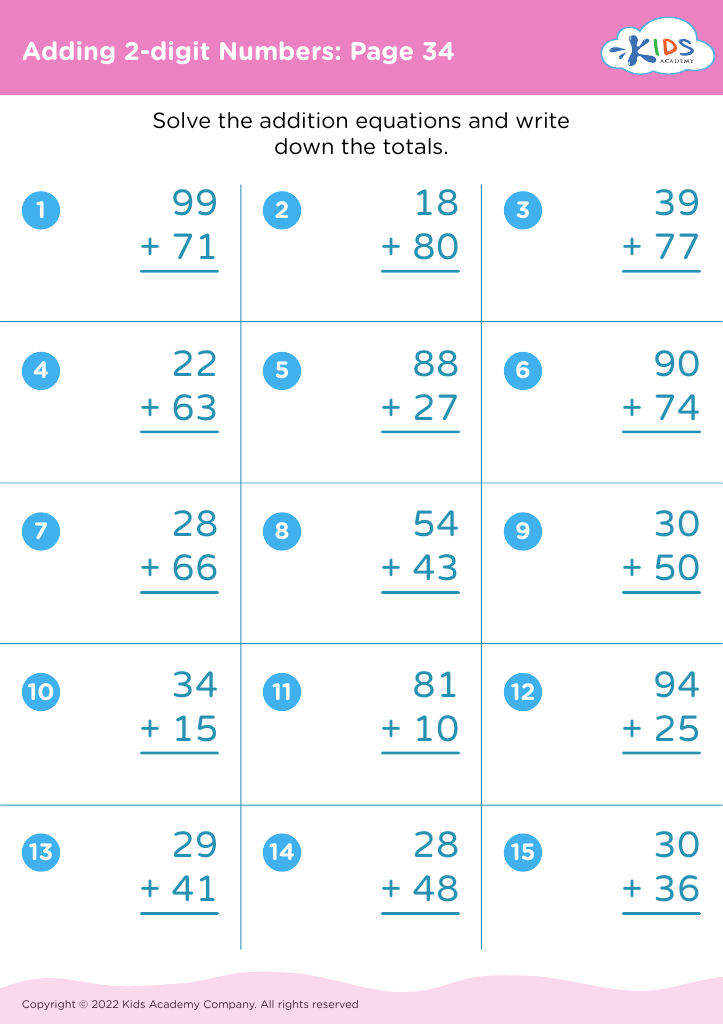Develop logical thinking Adding 2-digit Numbers Worksheets for Ages 5-8
3 filtered results
-
From - To
Introduce your young learners to the world of logic and numbers with our specially designed Adding 2-Digit Numbers Worksheets for ages 5-8. These engaging and educational worksheets are aimed at developing essential logical thinking skills. With fun illustrations and easy-to-follow instructions, kids will master the art of addition while enhancing their problem-solving abilities. Perfect for classroom activities or extra practice at home, these worksheets will make learning math an exciting adventure. Stimulate your child's cognitive development and build a robust mathematical foundation with naturally paced exercises that cater to their learning needs.
Parents and teachers should prioritize developing logical thinking and teaching 2-digit addition for children ages 5-8 because these skills form the foundational building blocks for more complex math and problem-solving abilities. During these early years, children's brains are highly receptive to learning new concepts, and fostering logical thinking enhances their ability to reason, analyze, and make connections across different subjects. By mastering 2-digit addition, kids not only gain a concrete understanding of numerical relationships but also build confidence and a positive attitude towards math, which is crucial for their long-term academic success.
Implementing activities like adding 2-digit numbers helps children grasp concepts such as place value, the importance of the tens and ones place, and the process of carrying over. These early experiences in mathematical reasoning can trigger an intrinsic interest in math, making them more eager to tackle challenging problems as they grow. Furthermore, developing logical thinking early on enhances essential soft skills such as critical thinking, decision-making, and problem-solving, which are beneficial across all areas of life. Thus, by ensuring children are proficient in these fundamental math skills, parents and teachers are not just preparing them for future academic pursuits, but equipping them with essential tools for everyday life and future professional careers.



















